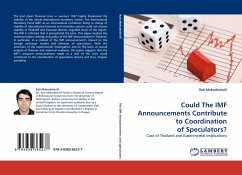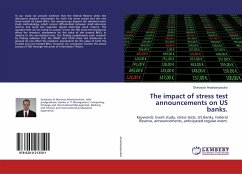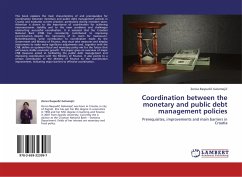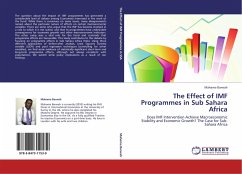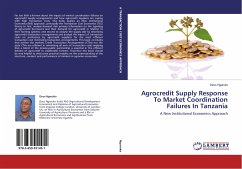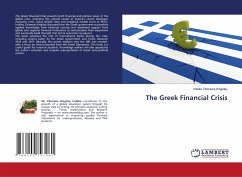The East Asian financial crisis in summer 1997 highly threatened the stability of the whole international monetary system. The International Monetary Fund (IMF) as an international institution being in charge of stability of international financial and monetary system could not restore stability in Thailand and financial distress engulfed much of the region. The IMF is criticized that it precipitated the crisis. This paper analysis the communication strategy and policy of the IMF demonstrated in Thailand. In particular, in a context of the IMF announcement s impact on the foreign exchange market and behavior of speculators. With the extension of the experimental investigation and on the basis of overall analysis of theories and empirical evidence, this paper suggests that the IMF s program announcement made at a mid of the crisis could contribute to the coordination of speculative attacks and thus, deepen instability.
Bitte wählen Sie Ihr Anliegen aus.
Rechnungen
Retourenschein anfordern
Bestellstatus
Storno

